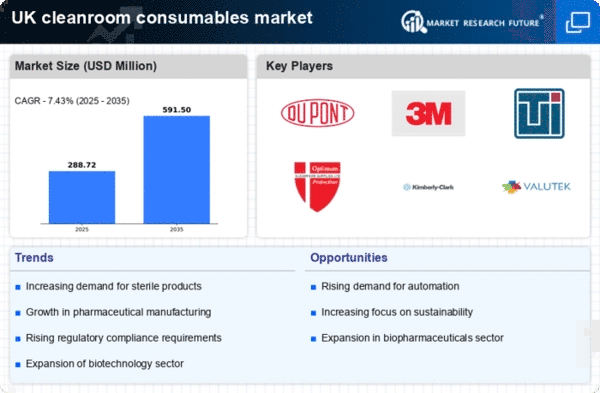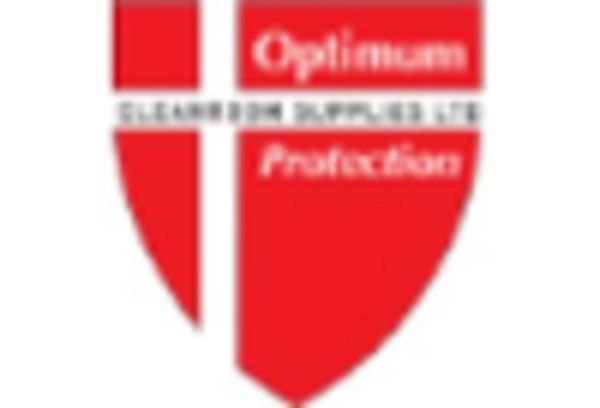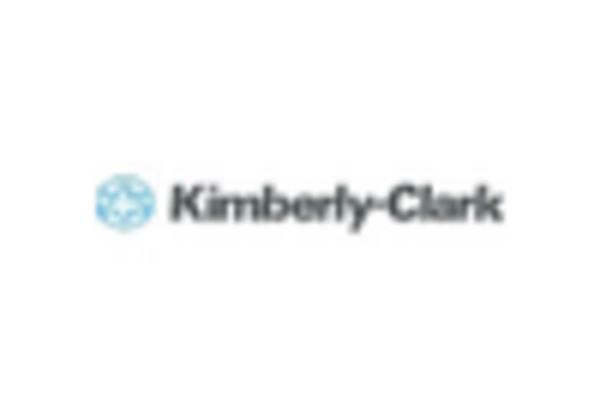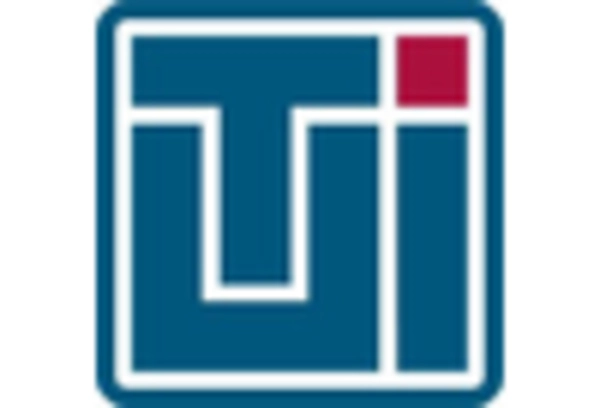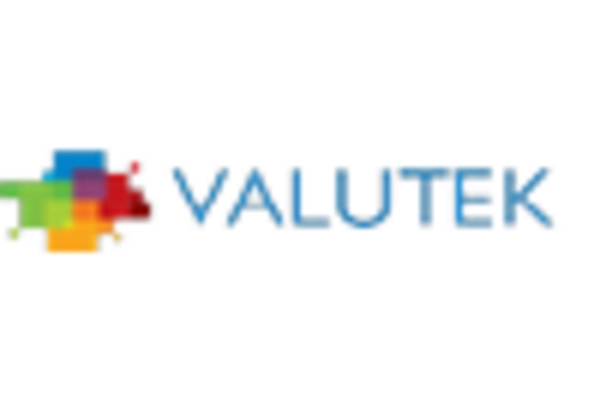Regulatory Compliance Requirements
The cleanroom consumables market is significantly influenced by stringent regulatory compliance requirements in the UK. Industries such as pharmaceuticals, biotechnology, and electronics are subject to rigorous standards set by regulatory bodies. These standards necessitate the use of high-quality consumables to ensure product safety and efficacy. For instance, the Medicines and Healthcare products Regulatory Agency (MHRA) mandates specific cleanliness levels in manufacturing environments. As a result, companies are compelled to invest in advanced cleanroom consumables to meet these regulations, driving market growth. The increasing complexity of compliance requirements may lead to a projected market growth of approximately 5.5% annually, as firms seek to avoid penalties and ensure operational integrity.
Expansion of Biopharmaceutical Manufacturing
The expansion of biopharmaceutical manufacturing in the UK is a significant driver for the cleanroom consumables market. With the increasing prevalence of chronic diseases and the demand for biologics, biopharmaceutical companies are ramping up production capabilities. This growth necessitates the use of high-quality cleanroom consumables to maintain sterile environments and prevent contamination. The UK biopharmaceutical sector is projected to grow at a CAGR of 7% over the next few years, further fueling the demand for consumables. As manufacturers invest in state-of-the-art facilities, the cleanroom consumables market is likely to experience a corresponding increase in demand, reflecting the industry's commitment to quality and safety.
Increased Focus on Product Quality and Safety
An increased focus on product quality and safety is a pivotal driver for the cleanroom consumables market. In sectors such as pharmaceuticals and electronics, the emphasis on delivering high-quality products has intensified. Companies are increasingly aware that the integrity of their products is directly linked to the cleanliness of their manufacturing environments. This awareness drives the demand for superior cleanroom consumables that can effectively mitigate contamination risks. The market is projected to grow at a rate of 4.5% as organizations prioritize quality assurance and invest in consumables that enhance safety and reliability. This trend reflects a broader commitment to excellence in product development.
Rising Investment in Research and Development
Investment in research and development (R&D) within the UK is a crucial driver for the cleanroom consumables market. As companies strive to innovate and enhance product offerings, the demand for specialized cleanroom consumables rises. The UK government has been actively promoting R&D initiatives, which has led to increased funding for various sectors, including pharmaceuticals and biotechnology. This investment is expected to boost the cleanroom consumables market, as firms require advanced materials and products to support their research activities. The market could see a growth rate of around 6% as organizations prioritize R&D to maintain competitive advantages and improve product quality.
Technological Integration in Manufacturing Processes
Technological integration in manufacturing processes is reshaping the cleanroom consumables market. The adoption of automation and advanced manufacturing technologies enhances efficiency and precision in cleanroom environments. As companies in the UK embrace Industry 4.0 principles, the need for compatible cleanroom consumables rises. These consumables must meet the evolving requirements of automated systems, which often demand higher cleanliness standards. The market is expected to grow by approximately 5% as manufacturers seek to align their consumables with new technologies, ensuring seamless operations and compliance with stringent cleanliness protocols. This trend indicates a shift towards more sophisticated and tailored consumable solutions.


